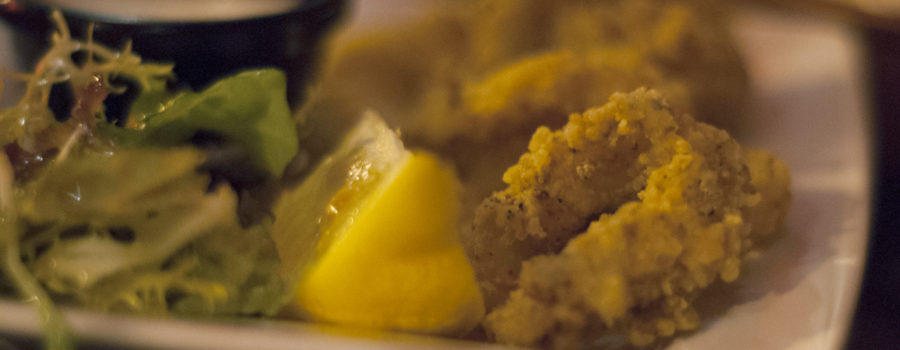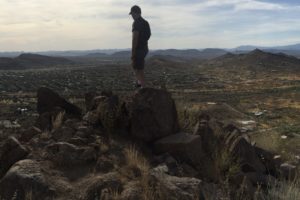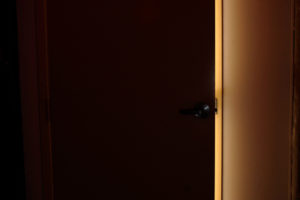With dread, most LDS look toward the first Sunday of the month and start preparing their excuses for why they cannot or will not be fasting. It is a standard event. Every first Sunday of the month, since I was about 12 years old, the Church has made that day the official Fast and Testimony day. We are asked to fast as a Church and we bear our testimonies in sacrament meeting, which for some is yet another torturous event.
Kids look at it in horror. “Great, mom and dad aren’t going to feed us. We are going to die.”
Some people suddenly develop the inability to go a couple hours without food without some debilitating, life threatening experience, like a tummy ache, a headache, or a bad mood. “You know how I get when I fast, I better have another cinnamon bun…”
There are of course legitimate reasons some cannot or will not fast. I think being pregnant is one of them, but I don’t know, I have never concerned myself with it, since I’m a dude.
With all the drama that the first Sunday can bring to a home, however, most people just choose to ignore it. That bowl of Cap’n Crunch is just too desirable and necessary to our longevity of life. However, I have a perfectly good reason why I rarely fasted. As a matter of fact, I can’t remember the last time I actually did.
I just didn’t care.
I had the same excuses, some very true: I did get debilitating headaches form fasting. But eventually it just became a habit of omission, and frankly, I really didn’t care, was never a thought or a concern. I wanted my Cap’n Crunch. With berries. Dagnab it.
In large measure, probably the biggest single reason why I didn’t fast or ever consider fasting as an option is this: I didn’t understand it. Sure, I read all the scriptures, heard the talks, heard the testimonies, but I could never wrap my head around why starving myself for a bit of tummy pain and a headache was going to make some miraculous change in my life.
Then, one day it struck. In a conversation with God recently, I mentioned that I didn’t understand why I was being restrained from engaging in one of my favorite activities. I missed this activity a lot, it brought me great pleasure and support. Without it I felt very lonely, very weak, and vulnerable.
“But why God, I want to! I miss this, my favorite activity that I am specifically being vague about to protect the identities and life experiences of anyone that may or may not be a subject of said activity.” (the lawyer speak was implied in my conversation, but you needed to know).
“Because you are dependent on that life activity for your support. You’re sense of what is possible is based on that activity. You need to learn that you don’t need it, you just need me.”
“But it huuuuuuuurts…” (whined in perfect four year old pitch, with scrunched face of abject despair).
“Yeah, I know. That’s part of the lesson. If you are dependent on something in the flesh, you aren’t dependent on me. I’m the one that isn’t going to fail you. The flesh will.”
“Hhmm, that does kinda sound like something Nephi might say. OK (again, in pouty four year old pitch), I get that, but it just seems like I am suffering for no reason. Like I am choosing not to eat because I just have to.”
“Kind of like a fast, huh. Do you think that fasting is about suffering? And is suffering just regarding food?”
Then it struck me. First, we associate a fast with food. But if you read the scriptures, there are all sorts of types of fasting. We can fast by going without shelter, we can fast by going without a social life, we can fast by going without pretty much anything. How many prophets went off into the wilderness for different periods of time. They didn’t take books or a cell phone with them, they weren’t camping with satellite TV and a cooler of lunch meat, they isolated themselves from aspects of human social convention. Food is just the most tangible aspect of fasting, the least disruptive, because we all feel it very quickly, very easily, and it is very easily remedied. Well, and because society would be a mess if everyone disappeared for 40 days: that would really play havoc on the service industry and put a lot of stress on the availability of wilderness to disappear to.
I also realized that fasting isn’t just about going without, but why the going without is important. Going without food is a symbol. A lot of metaphors relating to God’s word are related to food and nourishment. Fasting is not just about not eating because it is easy and obvious, it is also about realizing that we can go without something physically, but we will suffer if we go without spiritually. It is too establish in our minds that we can survive a little discomfort if we have our eyes set on spirituality. It is also to build a dependence and relationship on Him, not out of suffering, but out of constantly reminding ourselves with every pang, that we are doing this for our relationship with God.
I realized then that my going without my favorite activity was a fast. I was fasting from this activity to learn that I don’t need that activity to support me, to encourage me, or to help me in life, I need God. I love my favorite activity and I miss it a lot, but having gone weeks without out, I have learned that I am OK. As my dependency on it has decreased, my reliance on God, my faith in Him, and my willingness to trust Him have increased. Now I don’t need that activity, but I actually have a greater appreciation for it, and cherish it all the more as something I want instead of need.
I am on a fast. I pray about it everyday, but now that I see the purpose of it, I understand what I am getting out of it. It isn’t a moment of torture that is being inflicted on me, it is a reminder that I need to nourish my spirituality as well. Now I fast of things that aren’t just food. I purposely choose to not do something, prayerfully, to show my commitment to the Him. But also to show to myself that as long as I have a relationship with God and His Son, everything else is just luxury. Food is great. Peace of mind and confidence is so much better and couldn’t have been acquired if it hadn’t been for the fast of my favorite activity.
My suggestion then is this: if you are finding yourself frustrated, fast for something other than food. Fast your social life, fast your phone, fast entertainment; find something that distracts you that you think you need and fast it. It is easier to fast a social life for a month than food, but filling that time with prayer and conversations with God will be far more rewarding in the long run.




